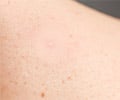A red-coloured tiny berry, which is known for its antioxidant qualities, can help protect against skin damage that leads to cancer, a new research has shown.
A new research has hailed the “goji berry” - a red-colored tiny berry endowed with antioxidant qualities- as effective protection from cancer-causing skin damage.
According to boffins at the University of Sydney who fed diluted juice from the goji berry to mice in the laboratory and found it protected them against the same sun damage as other mice when exposed to harsh UV rays, the berry could turn out to be really beneficial for humans.In another experiment it was shown that skin cancer advanced slower in mice that had drunk goji juice.
Cancer specialists have cautioned that while the berry, strong in antioxidant properties, appears to act like a sunscreen in mice, it is untested on humans.
Dr Vivienne Reeve, from the university's Faculty of Veterinary Science, and who is a scientific adviser to a company that distributes the juice, told a medical research conference in Brisbane on Monday that she fed mice either water or diluted juice and then exposed them to UV radiation to give them sunburn.
"The goji berry-drinking mice had significantly less inflammation of the skin," the Daily Telegraph quoted Reeve, as saying.
"And the juice seemed to protect the immune system because they didn't get immuno-suppression which is a major risk factor for skin cancer development in chronically over-exposed skin," the expert added.
Advertisement
"We haven't tested it on humans but this gives us every indication that we should if we want to help protect people from sun damage and disease," she said.
Advertisement
"Just because it works like sunscreen in mice does not mean it will do the same in humans as the two types of skin are very different," Prof Olver said.
Source-ANI
TAN/M













